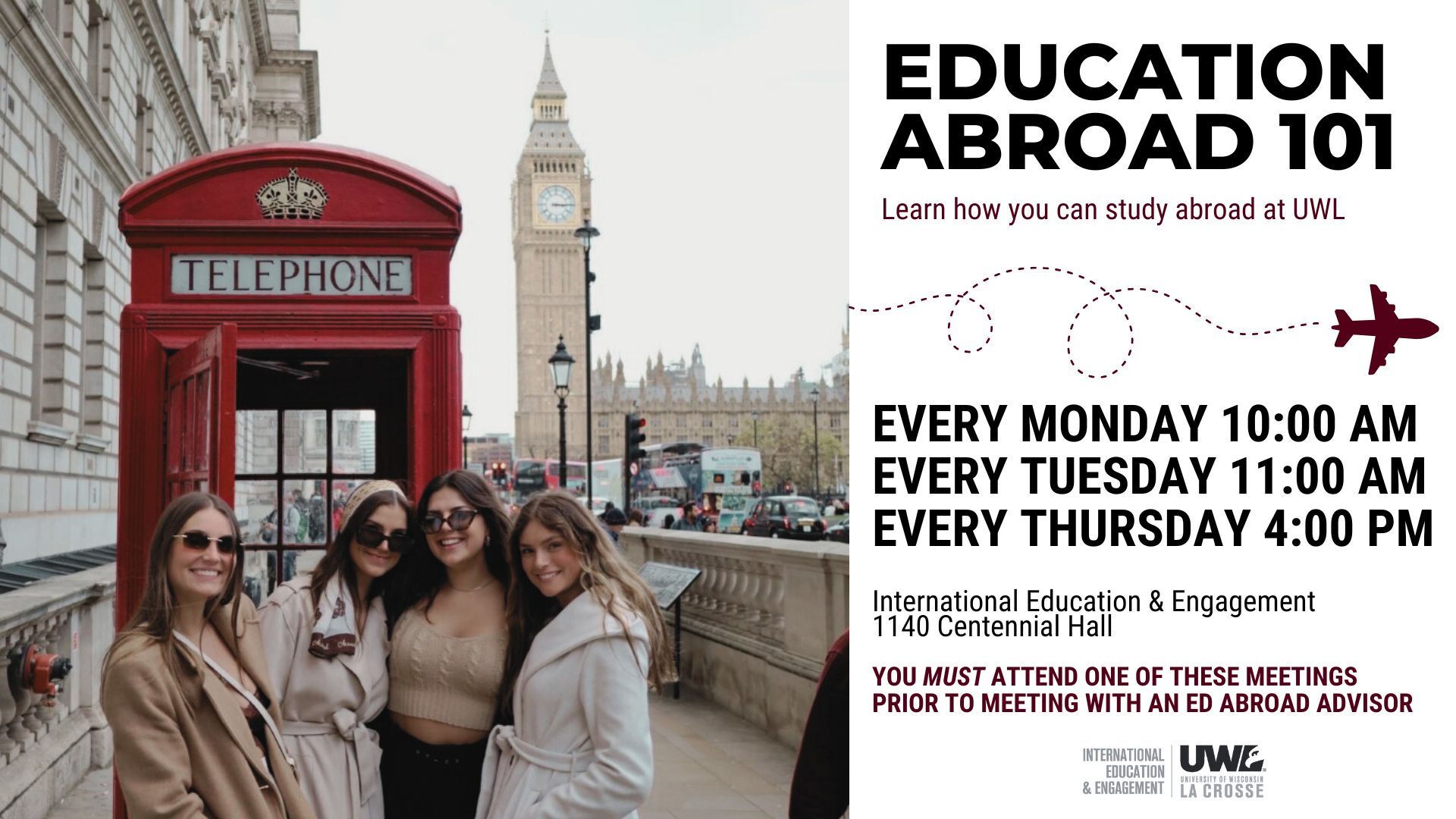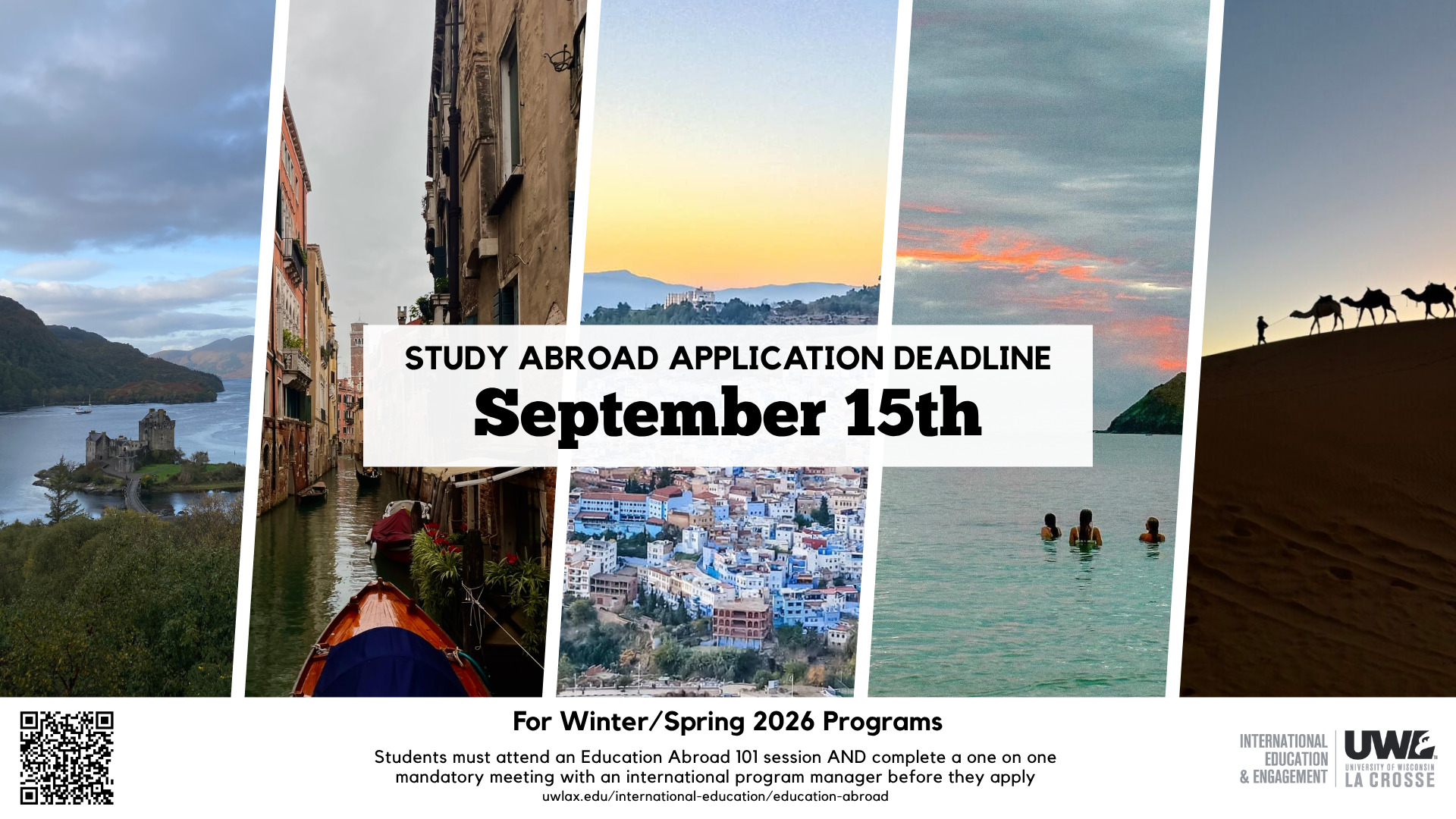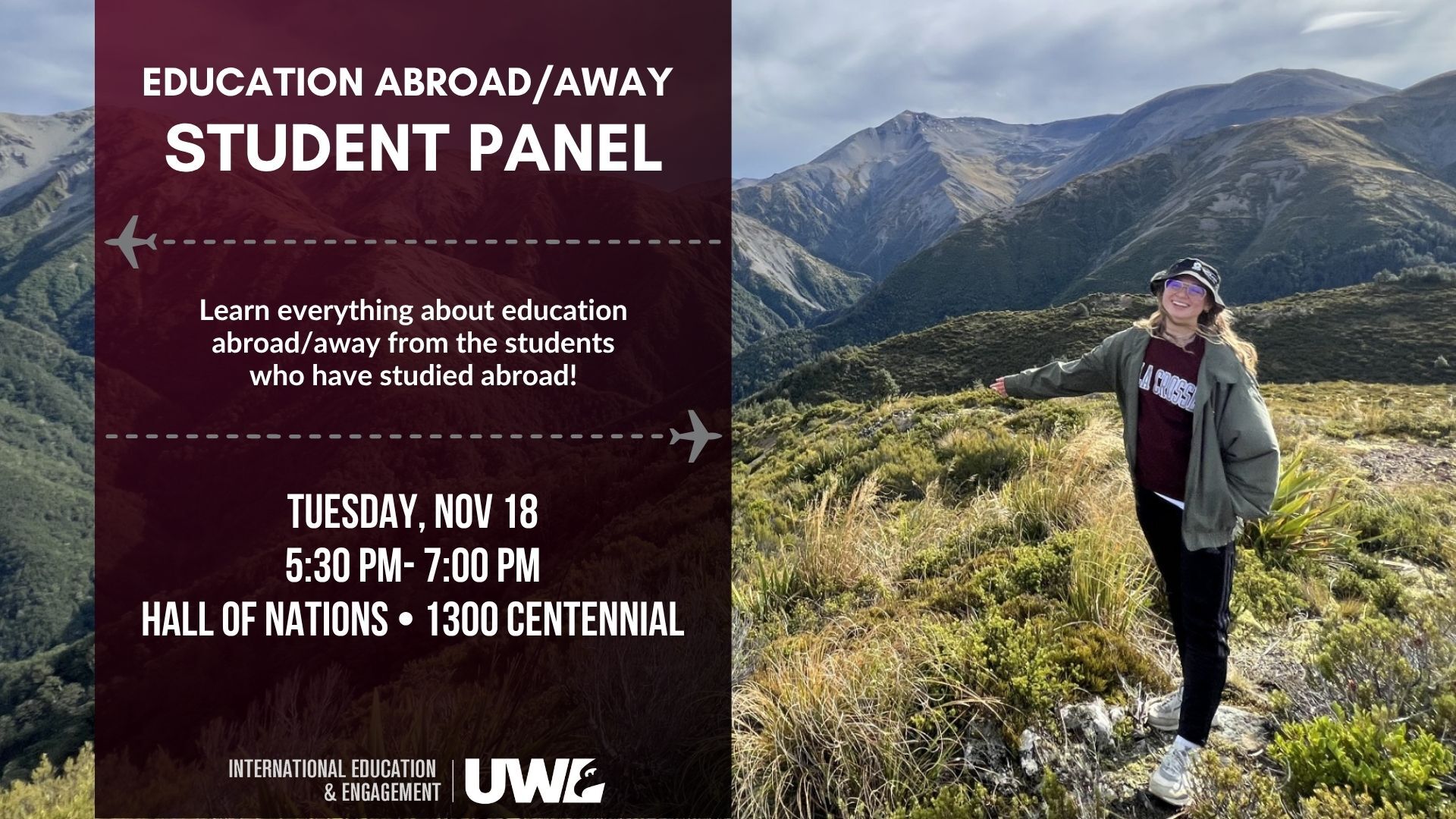Visible & Invisible Disabilities Abroad
A page within International Education & Engagement
Preparing for a study abroad experience is exciting for all students, but it can also be challenging. However, if students spend time planning and doing some research well in advance, the process can be much easier and enjoyable. For students with disabilities is not different, but a few additional steps need to be considered while planning the education abroad experience to ensure their access needs will be met. Throughout this process, it is important to keep in mind that the benefits of the ADA in the U.S. will not follow students abroad.
If you are a student with a visible or invisible disability, we highly encourage you to document your disability with the UWL Disability Resource Center (DRC). This voluntary self-identification will allow both IEE and the DRC work together with you to prepare any necessary and appropriate support services to facilitate your learning abroad.
Although many countries are becoming more aware of the needs of people with disabilities, not all countries have similar laws and accessible infrastructure and services. Thus, accessibility requests that may be reasonable in the U.S. may not be reasonable in other countries based on available resources. Before you start your research take some time to think about your goals and what you would like to achieve in your education abroad experience. It is also important to identify what are the essential accommodations you need, and how those differ from your preferred accommodations. Use that information when you are looking at programs and countries. For example, some of the most common accommodations made in educational settings abroad are:
- Extra time or private rooms to complete an exam.
- Flexible deadlines.
- Classroom accommodation such as reserved sitting or adjustable desk.
- Housing accommodation such as a private or accessible room.
- Excursion accommodation such as accessible transportation.
If you feel comfortable, disclose your disability with your Education Abroad Advisor. They will be able to help you with your research and find what kind of support options there are available in various countries and/or through program providers.
Once you are ready to start your research, use these questions and suggestions to help you:
- How is my disability perceived in that country? How are disabilities in general perceived there? What terminology is used when talking about disabilities?
- Research general accessibility in the countries of your interests. For example, accessible housing, public transportation, assistive technology, etc.
- How flexible can I be? There might be education abroad options in countries that are not your first choice, but appropriate accommodations may be more readily available.
- Am I comfortable if just my essential accommodations are met?
- Since I am very independent, how would I react if I received unsolicited attention?
- Since my disability is invisible, am I willing to voluntary share it with my peers or host family?
- If you have a prescription, you need to research your medication. Can I legally bring my medication to that country? Can I legally buy/refill my prescription there? Can I bring enough medication to last through my education abroad experience?
- If you anticipate needing counseling services, make sure you check in advance if you will have access to mental health counselors in that country, and if you can find those services in your native language. Also visit our page about Mental Health Abroad.
If your disability requires a Personal Care Assistant or a Sign Language Interpreter, we encourage you to meet with the UWL Disability Resource Center and IEE. We will consider these requests on a case-by-case basis as funding might be difficult to obtain.
Remember, planning well in advance is the key and it is the student’s responsibility to notify the DRC and IEE about the need for accommodation before selecting a program. To learn more about the education abroad process and programs offered at UWL, we encourage you to attend an Education Abroad 101 session, attend our Education Abroad Fair, and/or schedule an appointment with an Education Abroad Advisor. We are here for you!
Note: If once you are abroad, you experience unexpected access issues you should notify your host institution and your UWL Education Abroad Advisor as soon as possible. We will work collaboratively with the student, host institution, and the DRC to find a reasonable solution.
UWL Disability Resource Center (DRC) is located in 124 Wimberly Hall. To contact the DRC, please email drc@uwlax.edu,or call 608.785.6900.
Resources
Traveling with prescriptions - CDC
Mobility International U.S.A. (MIUSA)
Medication when traveling internationally - MIUSA
Students with Disabilities Abroad
Travelers with Disabilities – U.S. Department of State
Diversity Abroad - Students can create a free account.
12 Study Abroad Resources with Students with Disabilities
Participants with Disabilities
Studying in Germany as a Disabled Student
Studying in the UK as a Student with Disabilities
Studying in Australia as a Disabled Student
Disclaimer
The resources provided on this website are for informational purposes only. They do not constitute an endorsement or approval by UW-La Crosse of any of the products, services, or opinions of the corporation, organization, or individual. UW-La Crosse bears no responsibility for the accuracy,













